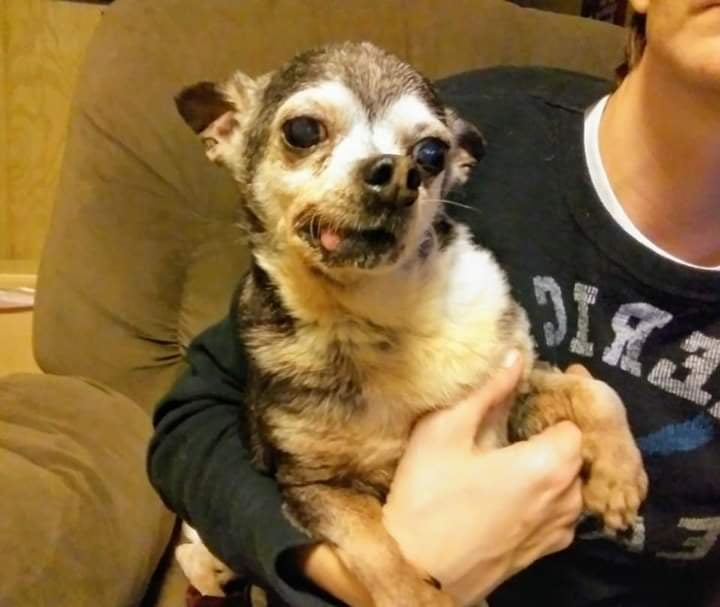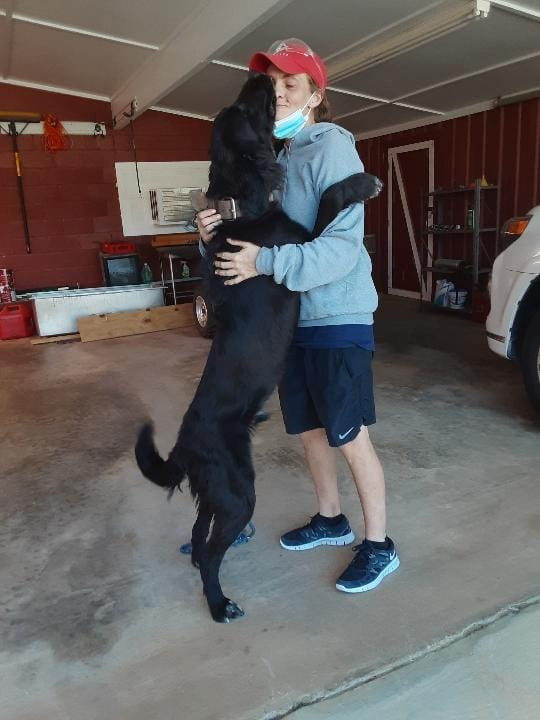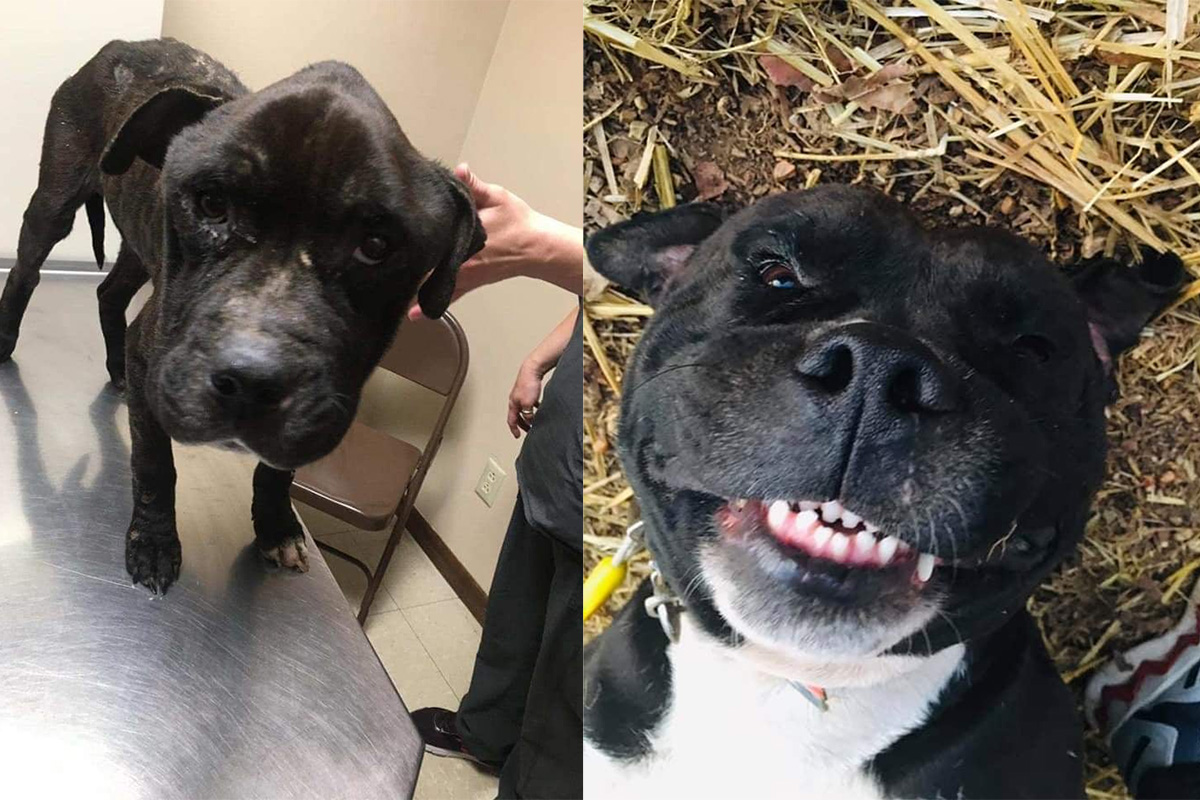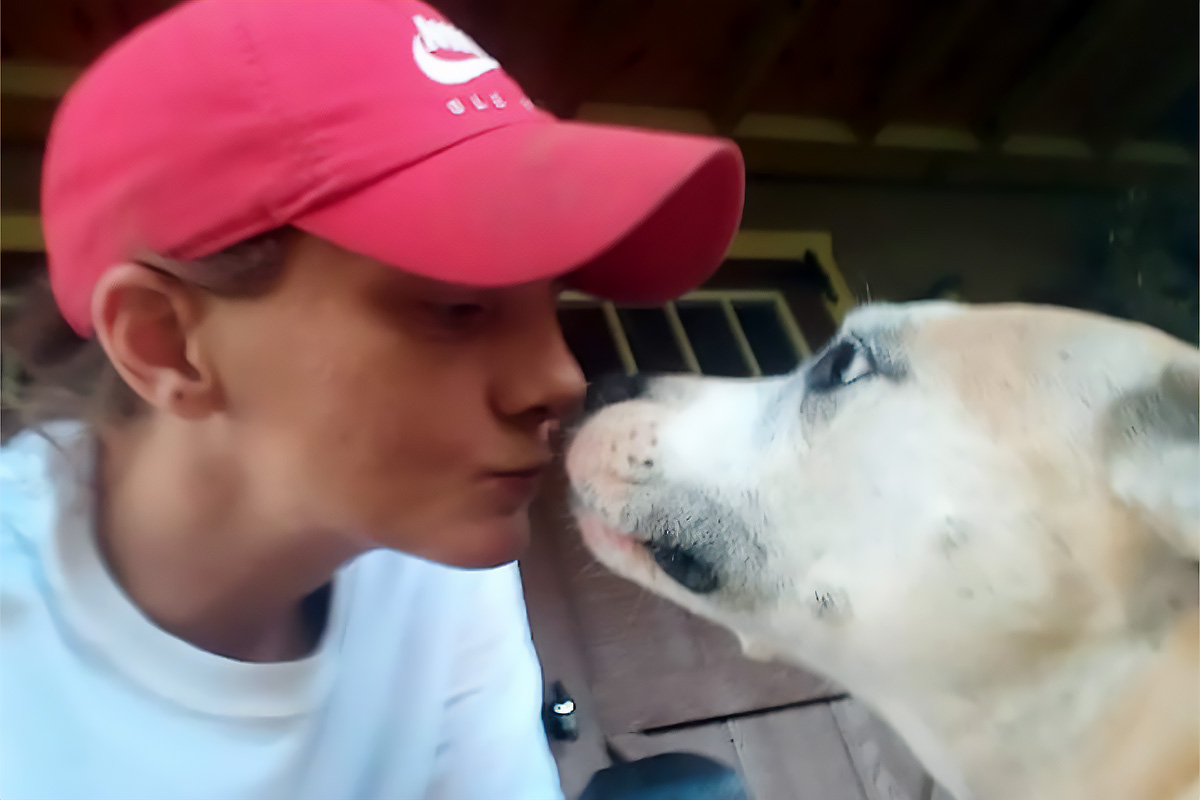In Tippah County, Miss., Meagan Cunningham is a passionate woman on a mission who is currently operating without any financial support from either the government or local businesses. She spends her time, treasure and passion saving as many lives as she can—the four-legged kind.

When asked about the unusual name for her operation, Cunningham explained how her very first rescue was RuPaul, a 6-pound black-and-white mixed breed. Ru was saved from a puppy mill over 20 years ago. Barely a year old at the time, the little guy would share her life for 18 years.
“Ru is the reason for my passion for rescue,” she continues. “It is because of him [that] this rescue even exists. Even though he passed away last year, his spirit lives on with every animal we rescue.”
The Scourge of Puppy Mills
Few things anger rescuers like puppy mills. Any of them will tell you that it’s better to rescue a needy animal than buy one. Commercially bred puppies are a result of consumer demand for a particular type or breed. In order to meet that demand some breeders keep their animals in harsh conditions. ”What I saw there broke my heart,” Cunningham said. “Dogs stacked in feces-filled crates on top of each other in a dark chicken pen.”
Cunningham puts in long days balancing her day job and her passion. She’s usually up at 4 a.m. to care for whatever animals she’s fostering; then off to Ashley Furniture for a full-time shift; then she works with the rescue animals until 8 p.m. She gets home to her own pets for a couple of hours of self-care before doing it all again the next day.
“I haven’t had a day off in years, not even when I had COVID,” she said. ‘No time to be sick.”
RTTR is a tiny operation specifically focused on Tippah County, which is a rural county without an animal shelter in North Mississippi, right along the Tennessee line. And while they work with the animal-control officer of the Ripley Police Department, the entire operation runs on individual donations of funds, supplies and labor, as well as those willing to provide foster care on a temporary basis.
Part of the emotional cost of this work is that there are always more animals brought to their attention than they can possibly take in. They are forced to triage what animals need their aid the most.
“Unfortunately, we can only take in those in the most desperate circumstance: sick, injured, neglected, starving, abused. Every animal we have to turn away is a heartache…it keeps me up at night.” Cunningham stated.
One point of pride, however, is the work with animal control. The city of Ripley ordinance is for such animals to be euthanized after 10 days; but in two years of working with RTTR, not a single animal has come to that fate.
The Worst of Human Behavior
Cunningham notes that rescue is one of those jobs which exposes you to the worst of human behavior. “We’ve come to expect evil, and be shocked by kindness,” she says solemnly. “I’ve rescued puppies dumped in a bag in a creek, kittens taped inside plastic bins, dogs abandoned in homes to starve… too many litters in a box by the road to count.”

So how do they persist through all this grief? Cunningham talks about the joy that comes from saving a life and the moments RTTR gets to comfort a frightened, hurting animal. They are able to love on those animals when they are too far gone, letting them know that not all humans are bad.
“When we foster we open our hearts to these precious creatures, it’s an amazing feeling,” she says, smiling. “We promise them that never again will they be abandoned or abused.”
Luckily, there’s a loose, unofficial network of local rescuers doing this same work. “We are each other’s lifeline when we’re at a breaking point,” Cunningham said.
RTTR partners with larger animal rescue networks in northern states, about 10 different organizations, to find forever homes for the animals that survive their trauma. After a few weeks or months of care and, where needed, medical attention in local foster homes, the animals are sent to a permanent adoptive home with caregivers who’ve been pre-screened for the animal’s safety.
“Every dog we send has to pass a health examination, be up to date on vaccines, be spayed/neutered, and heartworm negative,” Cunningham explained. It’s a never-ending process of taking them in at their worst, trying to meet both their physical and emotional needs, and putting them on a path to the life they deserved all along.
When asked what people need to know, the most prominent message is to please spay or neuter your animals. So often an animal needs a rescue because owners were overwhelmed by the birth of more little ones than they could care for and make bad choices.
Being able to spay/neuter an animal is an entry-level qualification for owning a pet. “It’s the only way out of this crisis,” Cunningham said. “We can’t rescue our way out—it’s like trying to empty the ocean with a spoon.”
It is also true that one of the best ways that a local government or community-minded business can contribute to changing this crisis is to sponsor and pay for free or low cost campaigns to get animals that may belong to families without the financial resources to get their animals “fixed.”
Beyond that, there are some basics that could reduce their workload and the level of animal suffering. “Most of the dogs we take in have heartworms, which is cheap to prevent (one pill a month) and extremely expensive to treat. It’s fatal if untreated,” Cunningham continued.

“Almost every dog we get has never been to a vet in their life. They are not vaccinated, which makes them susceptible to deadly diseases like parvo and distemper. We’ve treated over 100 puppies for parvo in the last year.”
Cunningham says it’s expensive, but worth every penny. “Lately we’ve taken in 20 heartworm-positive dogs and had four major orthopedic surgeries, so we are in desperate need for donations,” she explained.
As long as rescuers are forced to do what they do without sponsorship or government help, there will always be financial stress. Most of the time, after spending thousands, the animals can be saved, but some are too far gone by the time they are rescued.
“The ones that come to us are literally dying … those are the ones that break my heart. We hold them close while they take their last breath; We tell them how sorry we are that we didn’t make it in time.” Cunningham reflects solemnly. “I’ve done this too many times to count. It takes a horrible toll on rescuers. People say, ‘I don’t know how you do it.’ We have to. This is our calling. Our passion. Our life.”
“For every one we lose, there are others who need our help,” Cunningham pleads. “ Our hearts heal as their bodies heal. I rescue them once, but they save me every day.”
Anyone wishing to offer financial support can contribute via Paypal at rutotherescue@gmail.com, or by contributing to the standing accounts with Baldwin Veterinary Hospital (662-365-8605) or New Albany Animal Clinic (662-534-5176)
This MFP Voices essay does not necessarily represent the views of the Mississippi Free Press, its staff or board members. To submit an essay for the MFP Voices section, send up to 1,200 words and factcheck information to azia@mississippifreepress.org. We welcome a wide variety of viewpoints.






